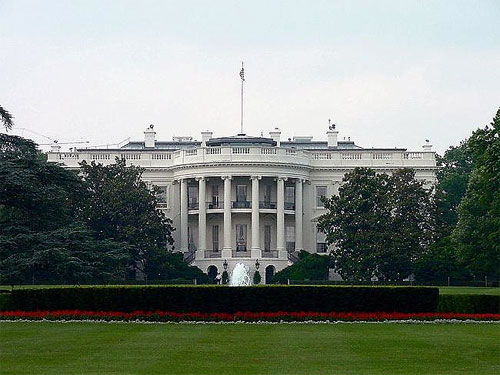White House Transcript: Press Conference by the President [excerpt]

The White House
Office of the Press Secretary
For Immediate Release
August 01, 2014
Press Conference by the President [excerpt]
James S. Brady Press Briefing Room
THE PRESIDENT: Look, this is a common theme that folks bring up. Apparently people have forgotten that America, as the most powerful country on Earth, still does not control everything around the world. And so our diplomatic efforts often take time. They often will see progress and then a step backwards. That’s been true in the Middle East. That’s been true in Europe. That’s been true in Asia. That’s the nature of world affairs. It’s not neat, and it’s not smooth.
But if you look at, for example, Ukraine, we have made progress in delivering on what we said we would do. We can’t control how Mr. Putin thinks. But what we can do is say to Mr. Putin, if you continue on the path of arming separatists with heavy armaments that the evidence suggests may have resulted in 300 innocent people on a jet dying, and that violates international law and undermines the integrity — territorial integrity and sovereignty of Ukraine, then you’re going to face consequences that will hurt your country.
And there was a lot of skepticism about our ability to coordinate with Europeans for a strong series of sanctions. And each time we have done what we said we would do, including this week, when we put in place sanctions that have an impact on key sectors of the Russian economy — their energy, their defense, their financial systems.
It hasn’t resolved the problem yet. I spoke to Mr. Putin this morning, and I indicated to him, just as we will do what we say we do in terms of sanctions, we’ll also do what we say we do in terms of wanting to resolve this issue diplomatically if he takes a different position. If he respects and honors the right of Ukrainians to determine their own destiny, then it’s possible to make sure that Russian interests are addressed that are legitimate, and that Ukrainians are able to make their own decisions, and we can resolve this conflict and end some of the bloodshed.
But the point is, though, Bill, that if you look at the 20th century and the early part of this century, there are a lot of conflicts that America doesn’t resolve. That’s always been true. That doesn’t mean we stop trying. And it’s not a measure of American influence on any given day or at any given moment that there are conflicts around the world that are difficult. The conflict in Northern Ireland raged for a very, very long time until finally something broke, where the parties decided that it wasn’t worth killing each other….
The Palestinian-Israeli conflict has been going on even longer than you’ve been reporting. (Laughter.) And I don’t think at any point was there a suggestion somehow that America didn’t have influence just because we weren’t able to finalize an Israeli-Palestinian peace deal.
You will recall that situations like Kosovo and Bosnia raged on for quite some time, and there was a lot more death and bloodshed than there has been so far in the Ukrainian situation before it ultimately did get resolved.
And so I recognize with so many different issues popping up around the world, sometimes it may seem as if this is an aberration or it’s unusual. But the truth of the matter is, is that there’s a big world out there, and that as indispensable as we are to try to lead it, there’s still going to be tragedies out there and there are going to be conflicts. And our job is to just make sure that we continue to project what’s right, what’s just, and that we’re building coalitions of like-minded countries and partners in order to advance not only our core security interests but also the interests of the world as a whole.
Q Do you think you could have done more?
THE PRESIDENT: On which one?
Q On any of them? Ukraine?
THE PRESIDENT: Well look, I think, Bill, that the nature of being President is that you’re always asking yourself what more can you do. But with respect to, let’s say, the Israeli-Palestinian issue, this administration invested an enormous amount to try to bring the parties together around a framework for peace and a two-state solution. John Kerry invested an enormous amount of time. In the end, it’s up to the two parties to make a decision. We can lead them to resolve some of the technical issues and to show them a path, but they’ve got to want it.
With respect to Ukraine, I think that we have done everything that we can to support the Ukrainian government and to deter Russia from moving further into Ukraine. But short of going to war, there are going to be some constraints in terms of what we can do if President Putin and Russia are ignoring what should be their long-term interests.
Right now, what we’ve done is impose sufficient costs on Russia that, objectively speaking, they should — President Putin should want to resolve this diplomatically, get these sanctions lifted, get their economy growing again, and have good relations with Ukraine. But sometimes people don’t always act rationally, and they don’t always act based on their medium- or long-term interests. That can’t deter us, though. We’ve just got to stay at it.
